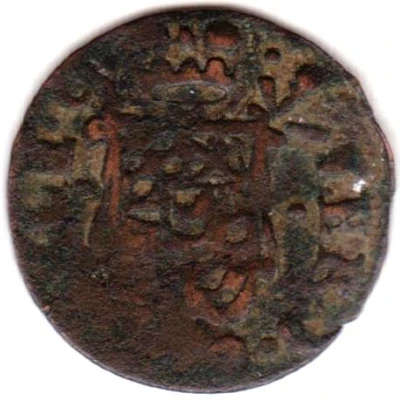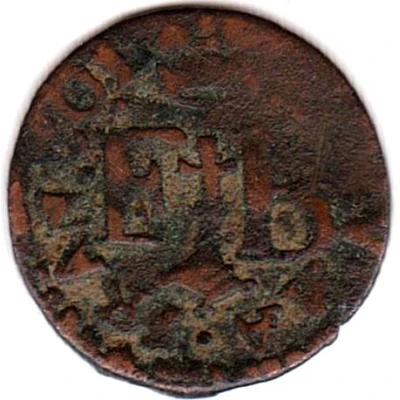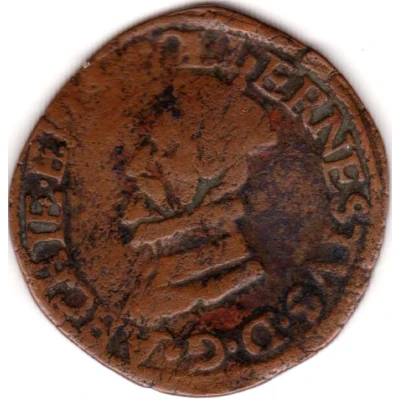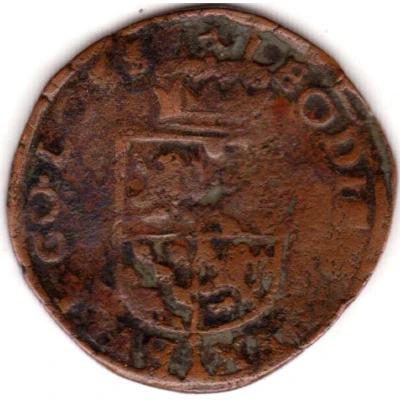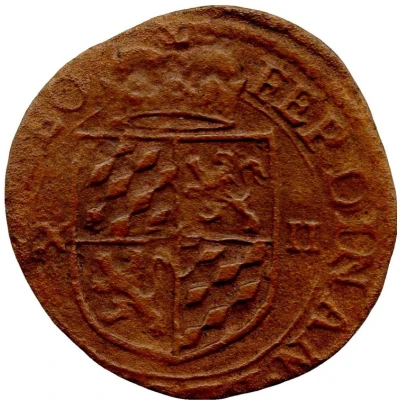
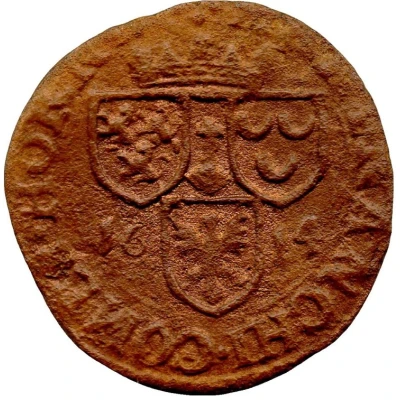

© Monnaies de Liège
12 Sols Brûlé "½ Aidant or Gigot" - Ferdinand of Bavaria
| Copper | 2.78 g | 22.8 mm |
| Issuer | Prince-bishopric of Liege (Belgian States) |
|---|---|
| Prince-bishop | Ferdinand of Bavaria (Ferdinand von Bayern) (1612-1650) |
| Type | Standard circulation coin |
| Years | 1614-1615 |
| Value | 12 Sous = ½ Liard (1⁄160) |
| Currency | Florin Brabant-Liege (1545-1650) |
| Composition | Copper |
| Weight | 2.78 g |
| Diameter | 22.8 mm |
| Shape | Round (irregular) |
| Orientation | Medal alignment ↑↑ |
| Demonetized | Yes |
| Updated | 2024-10-04 |
| Numista | N#52229 |
|---|---|
| Rarity index | 84% |
Reverse
In the field, the perron of Liège surrounded by three shields surmounted by an ornate crown, and at the sides the date. The coat of arms features the Marquisate of Franchimont on the left, the County of Hornes on the right, and the arms of the German Empire below.
Script: Latin
Lettering:
MAR . FRANCHI . COMES . HORNE .
1614
Comment
There is an undated variety, a variant without date or value.And one with crowned lions on the Palatinate shield.
Interesting fact
One interesting fact about this coin is that it was minted during a time of great turmoil in the Prince-bishopric of Liege, which was a small state in what is now Belgium. The coin was issued by Ferdinand of Bavaria, who was the Prince-bishop of Liege from 1614 to 1615. During his reign, the region was facing economic and political challenges, including a severe famine and conflicts with neighboring states. Despite these challenges, the coin was minted with a unique design, featuring a half-aidant or gigot, which is a symbol of a half-eaten ham, on one side and the coat of arms of the Prince-bishopric of Liege on the other. This coin is a rare and interesting example of the currency used during this time period and offers a glimpse into the history of the region.
